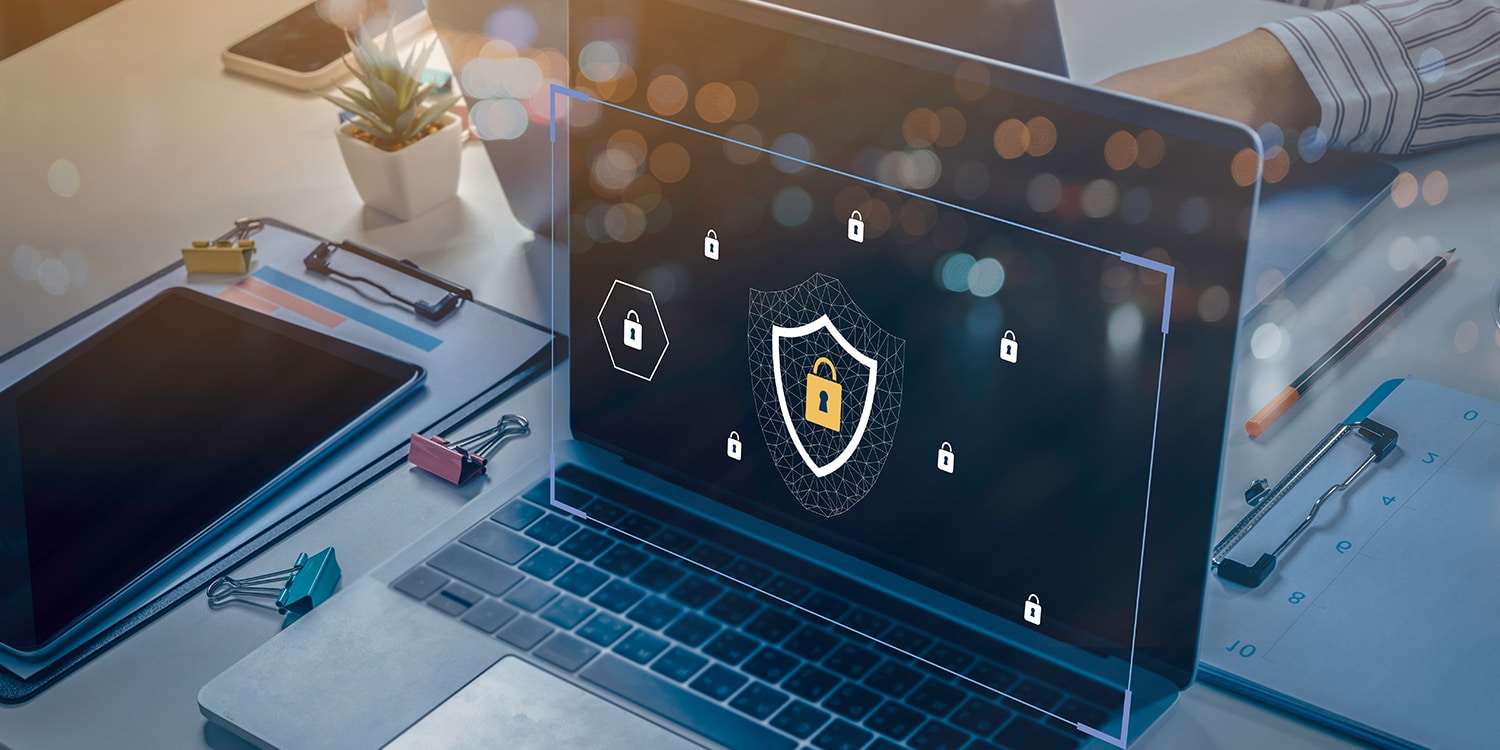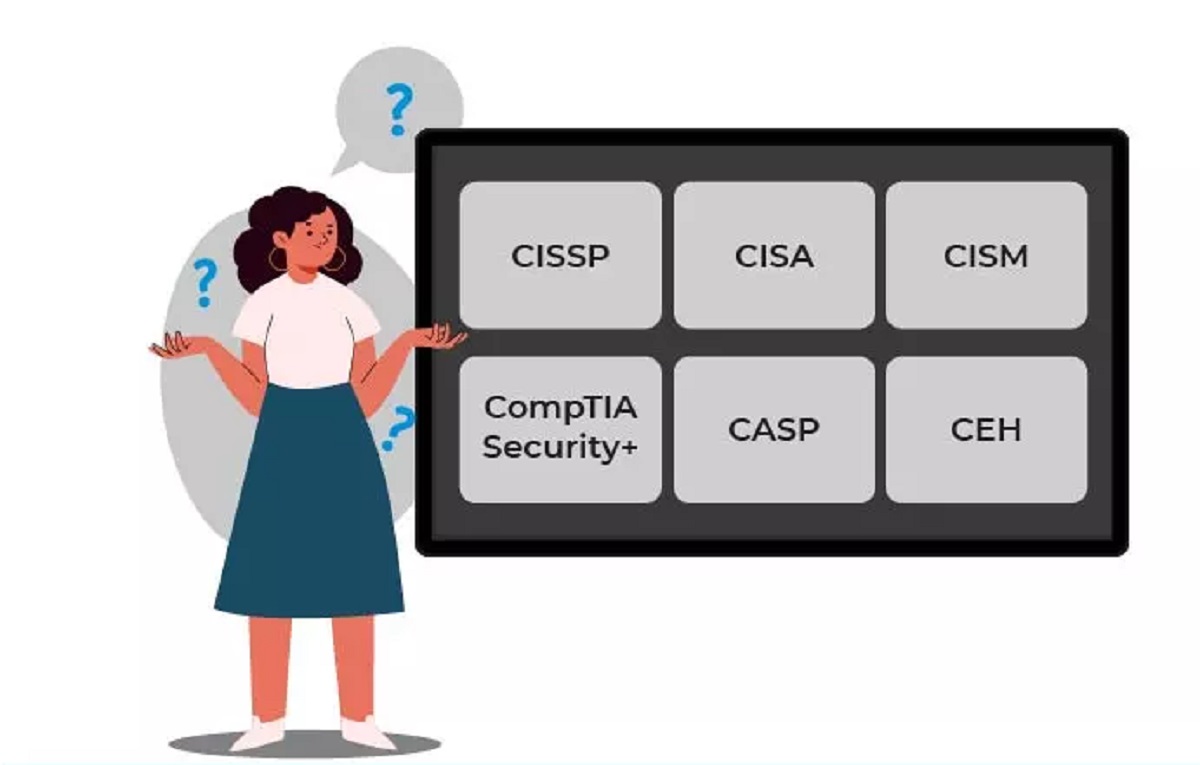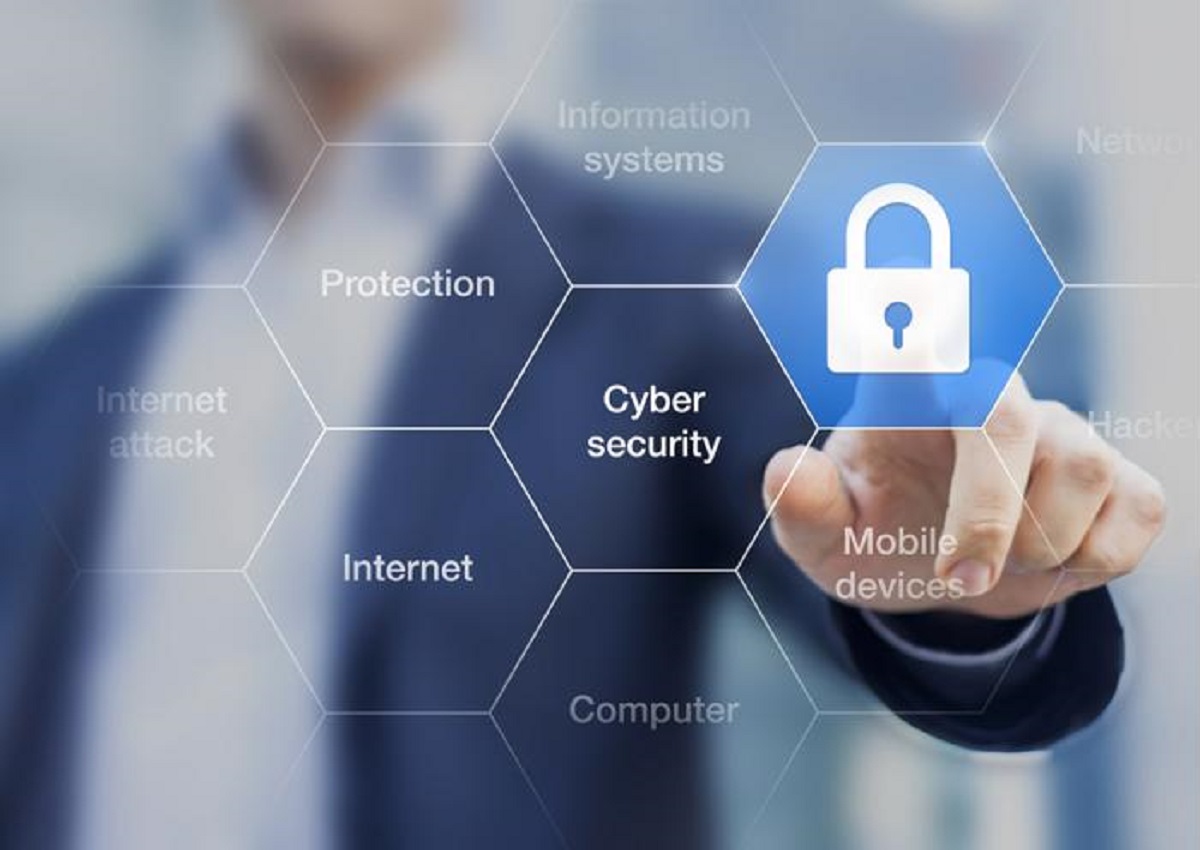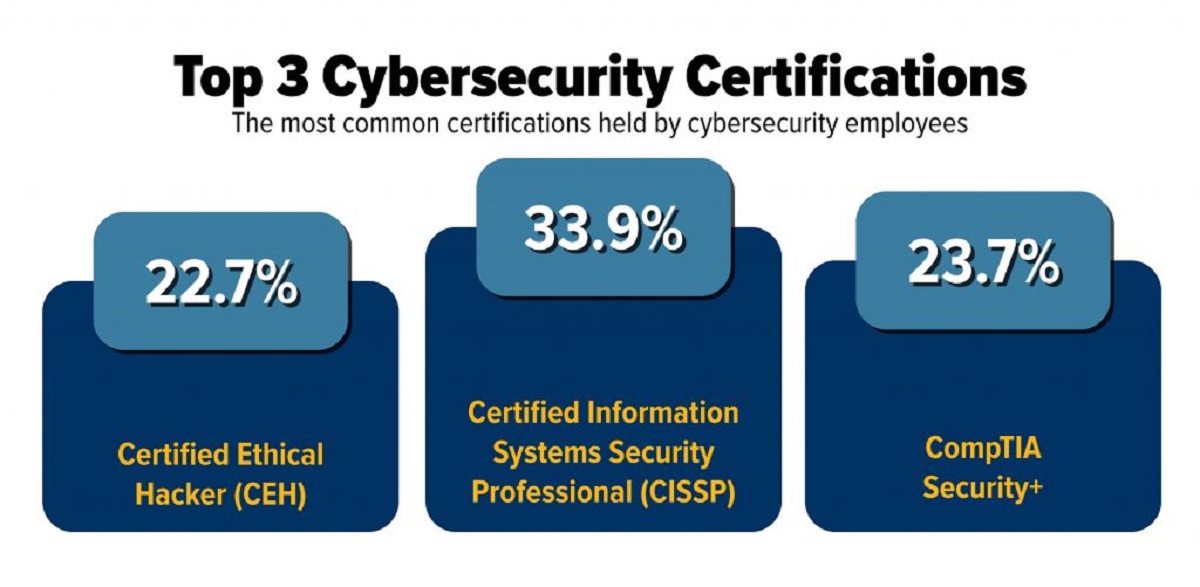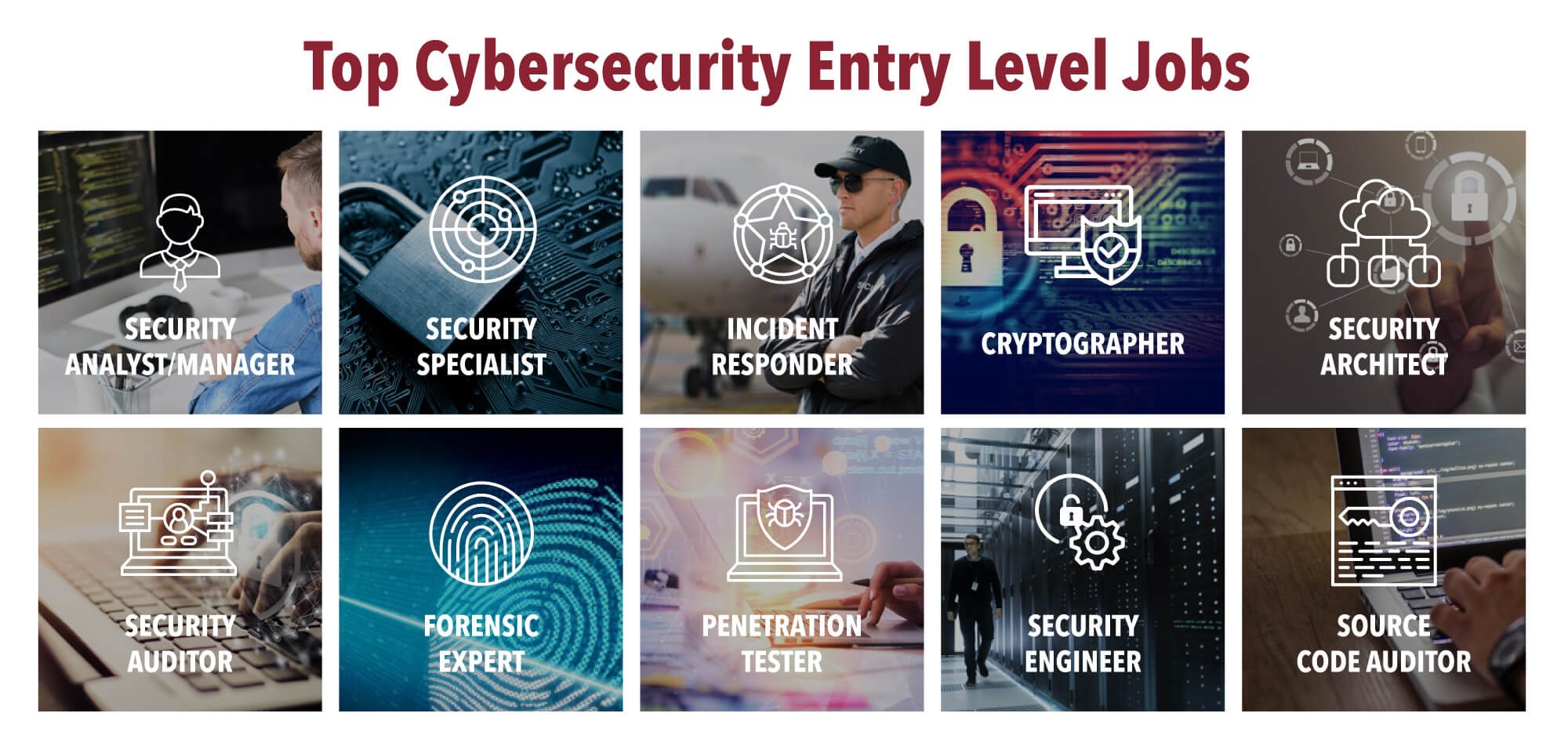Introduction
Welcome to the exciting world of cybersecurity! As technology continues to advance, the need for skilled cybersecurity professionals is growing rapidly. Organizations of all sizes are increasingly investing in robust cybersecurity measures to protect their sensitive data and networks from cyber threats.
Being a cybersecurity analyst is a rewarding and challenging career choice. You’ll have the opportunity to play a crucial role in safeguarding digital assets from cyber attacks and ensuring the confidentiality, integrity, and availability of information systems.
In this article, we’ll explore the necessary education, skills, certifications, and experience required to become a successful cybersecurity analyst. We’ll also discuss the importance of networking, staying updated with industry trends, developing technical and soft skills, and continuously learning to excel in this field.
Nowadays, a bachelor’s degree in cybersecurity, computer science, or a related field is generally preferred by employers. However, a degree is not the only path into the cybersecurity industry. Many professionals have successfully entered the field with certifications and practical experience.
As a cybersecurity analyst, you’ll need a strong foundation in various areas such as network security, threat intelligence, risk assessment, incident response, and vulnerability management. This will require a combination of technical expertise, analytical thinking, problem-solving skills, and a commitment to staying up to date with the ever-evolving cyber threat landscape.
Whether you’re a recent graduate, a career changer, or already have some experience in the IT field, this article will guide you on your journey to becoming a cybersecurity analyst. Let’s dive in!
Education and Skills Required
One of the first steps toward becoming a cybersecurity analyst is gaining the necessary education and acquiring the right set of skills. While a bachelor’s degree in cybersecurity, computer science, or a related field is commonly preferred, it is not always a mandatory requirement. Here are the key aspects to consider:
Educational Background: Pursuing a degree in cybersecurity or a related field equips you with a solid foundation in various areas of information security. You will learn about network security, cryptography, ethical hacking, risk management, and more. However, if you don’t have a degree in cybersecurity, don’t be discouraged. Many professionals have successfully entered the field through self-study, certifications, or relevant work experience.
Technical Skills: As a cybersecurity analyst, having a strong technical skill set is crucial. You should be familiar with networking concepts, operating systems, scripting languages, and security tools. Understanding programming languages like Python, Java, or C++ can be beneficial when conducting penetration testing or analyzing malware. Additionally, having hands-on experience with security technologies such as firewalls, intrusion detection systems, and antivirus software is highly valuable.
Analytical Thinking: The ability to analyze complex information, identify patterns, and think critically is essential in the cybersecurity field. As a cybersecurity analyst, you’ll frequently deal with vast amounts of data and need to make informed decisions quickly. Developing your analytical thinking skills will help you analyze security incidents, assess vulnerabilities, and recommend appropriate mitigation strategies.
Communication Skills: Effective communication skills are vital in the cybersecurity field. You’ll often collaborate with other team members, present findings and recommendations to stakeholders, and explain complex technical concepts to non-technical individuals. Strong verbal and written communication skills will help you convey your ideas, findings, and recommendations clearly and confidently.
Industry Certifications: While not mandatory, earning industry-recognized certifications can demonstrate your expertise and dedication to the field. Certifications like CompTIA Security+, Certified Information Systems Security Professional (CISSP), Certified Ethical Hacker (CEH), and Certified Information Security Manager (CISM) are highly regarded in the cybersecurity industry.
By combining the right educational background, technical skills, analytical thinking, and effective communication skills, you’ll be well-equipped to embark on a successful career as a cybersecurity analyst. Remember, continuous learning is key in this field, as technology and threats evolve rapidly.
Certifications
In the field of cybersecurity, acquiring industry-recognized certifications can significantly enhance your credentials and demonstrate your expertise to potential employers. Certifications validate your knowledge and skills in specific areas of cybersecurity and can give you a competitive edge in the job market. Here are some widely recognized certifications to consider:
1. CompTIA Security+: This entry-level certification covers the fundamental concepts of cybersecurity, network security, cryptography, and security technologies. It is a great starting point for those who are new to the field and want to build a solid foundation.
2. Certified Information Systems Security Professional (CISSP): The CISSP certification is globally recognized and highly respected. It demonstrates your expertise in various security domains, including security and risk management, asset security, and security operations. It requires a minimum of five years of professional experience in at least two of the domains.
3. Certified Ethical Hacker (CEH): This certification focuses on the ethical hacking and penetration testing aspects of cybersecurity. It equips you with the knowledge and skills to identify vulnerabilities, exploit weaknesses, and assess the security posture of information systems.
4. Certified Information Security Manager (CISM): The CISM certification is intended for cybersecurity professionals who are involved in managing, designing, or overseeing an enterprise’s information security program. It covers topics such as risk management, incident management, and governance.
5. Offensive Security Certified Professional (OSCP): The OSCP certification is highly regarded in the cybersecurity industry, especially for those interested in offensive security and penetration testing. It requires passing a hands-on exam that tests your ability to identify vulnerabilities, exploit them, and document the findings.
While these certifications can serve as valuable credentials, it’s important to note that certifications alone are not enough to guarantee success in the field. Practical experience, continuous learning, and a strong understanding of cybersecurity fundamentals are equally essential.
It’s also worth mentioning that there are certifications available for specialized areas within cybersecurity, such as digital forensics, cloud security, and incident response. Depending on your interests and career goals, pursuing specialized certifications can further enhance your expertise in those areas.
When considering certifications, it’s important to research the specific requirements, exam format, and industry recognition. Some certifications may require a certain amount of professional experience or have prerequisites. Additionally, staying up to date with emerging certifications and industry trends can help you choose the most relevant certifications for your career advancement.
Remember, certifications should not replace practical experience and continuous learning, but rather complement them in your journey to becoming a well-rounded and knowledgeable cybersecurity professional.
Gaining Experience
When it comes to pursuing a career in cybersecurity, gaining practical experience is crucial. It not only enhances your technical skills but also provides valuable insights into real-world security challenges. Here are some pathways to gain experience in the field:
Internships and Entry-Level Positions: Seek out internship opportunities or entry-level positions in cybersecurity. These positions provide hands-on experience, allow you to work with seasoned professionals, and expose you to various aspects of cybersecurity. Even if the role is not immediately aligned with your career goals, the experience gained can be invaluable in shaping your cybersecurity expertise.
Volunteer and Open-Source Projects: Contribute your skills to open-source cybersecurity projects or volunteer for cybersecurity initiatives. This allows you to work on real-world projects, collaborate with industry professionals, and showcase your abilities. Contributing to open-source projects demonstrates your commitment to continuous learning and can also help you build a network within the cybersecurity community.
Capture the Flag (CTF) Challenges: Participate in Capture the Flag competitions, which are online challenges designed to test and improve your cybersecurity skills. These interactive challenges often simulate real-world scenarios, such as penetration testing or solving security puzzles. CTF challenges provide hands-on experience and allow you to hone your technical abilities while having fun.
Personal Projects: Undertake personal cybersecurity projects to deepen your understanding and enhance your skills. This could involve setting up a virtual lab to practice different techniques, securing your own systems, or analyzing malware samples. Personal projects not only demonstrate initiative but also provide an opportunity to explore areas of interest that may not be covered in your formal education.
Networking and Mentoring: Connect with professionals in the cybersecurity field through networking events, industry conferences, and online communities. Engaging with experienced individuals can provide valuable insights, guidance, and potential job opportunities. A mentor can provide advice, share their experiences, and help you navigate your career path in cybersecurity.
Continuing Education: Stay updated with the latest cybersecurity trends, technologies, and best practices through self-study, webinars, workshops, and industry conferences. Engaging in continuous learning demonstrates your commitment to professional growth and your willingness to adapt to the evolving nature of cybersecurity.
Remember, gaining experience is a continuous process. Be proactive in seeking opportunities to apply your skills, stay curious, and embrace new challenges. Each experience, whether big or small, can contribute to your growth as a cybersecurity professional.
Networking and Building Relationships
In the field of cybersecurity, networking and building relationships are not only important for personal growth but also for professional advancement. The cybersecurity community is vast and interconnected, offering numerous opportunities to connect with like-minded professionals, mentors, and potential employers. Here are some strategies for effective networking and relationship-building:
1. Join Professional Organizations: Explore professional organizations dedicated to cybersecurity, such as the Information Systems Security Association (ISSA) or the International Association of Privacy Professionals (IAPP). These organizations offer networking events, workshops, and conferences where you can meet industry professionals, exchange knowledge, and stay updated with the latest trends.
2. Engage on Social Media and Online Communities: Participate in cybersecurity-focused online communities and forums like Reddit’s r/cybersecurity or LinkedIn groups. Share your insights, ask questions, and contribute to discussions. Engaging with others in the field can help you expand your network and learn from experienced professionals.
3. Attend Conferences and Meetups: Attend cybersecurity conferences, meetups, and workshops in your area or join virtual events. These events bring together experts, industry leaders, and peers, providing opportunities for networking, knowledge sharing, and career development. Networking at these events can lead to valuable connections and potential job opportunities.
4. Connect with Alumni and Peers: Reach out to alumni from your educational institution who are working in the cybersecurity industry. They can provide guidance, mentorship, and valuable advice based on their experiences. Additionally, build relationships with your peers and classmates, as they may become your professional network in the future.
5. Seek Mentors: Find experienced professionals in the cybersecurity field who are willing to mentor you. Mentors can offer valuable insights, career guidance, and support as you navigate your cybersecurity career. A mentor can provide advice, share industry knowledge, and help you identify growth opportunities.
6. Volunteer and Collaborate: Offer your skills and expertise by volunteering for cybersecurity initiatives or projects. Collaborating with others not only allows you to contribute to the community but also helps you build valuable relationships. Volunteering can lead to referrals, recommendations, and further networking opportunities.
7. Maintain Your Professional Online Presence: Create a professional online profile on platforms like LinkedIn and maintain an up-to-date and complete profile. Showcase your skills, accomplishments, and certifications. Actively engage with others in your network by endorsing skills, sharing relevant content, and participating in discussions.
Remember, networking is not merely about collecting contacts; it’s about building relationships based on mutual respect, trust, and shared interests. Focus on providing value to others, being genuine, and nurturing your connections over time. Networking can open doors to new opportunities, collaborations, and career growth in the cybersecurity field.
Staying Up to Date with Industry Trends
In the fast-paced field of cybersecurity, staying up to date with industry trends is essential to remain relevant and effective in your role. Cyber threats and technologies evolve rapidly, making it crucial to stay informed about the latest advancements. Here are some strategies to stay current with industry trends:
1. Follow Industry Publications and Blogs: Subscribe to cybersecurity publications and blogs that provide up-to-date information on emerging threats, new technologies, and best practices. Some popular publications include Dark Reading, Security Week, and The Hacker News. Regularly reading these publications will keep you informed about the latest trends and insights from experts in the field.
2. Attend Webinars and Online Courses: Many organizations and cybersecurity experts offer webinars and online courses that cover a wide range of topics. These virtual events provide opportunities to expand your knowledge, gain insights from industry leaders, and learn about cutting-edge technologies and techniques. Keep an eye out for relevant webinars and courses that align with your interests and professional goals.
3. Engage in Social Media Discussions: Join cybersecurity-related groups on social media platforms like LinkedIn, Twitter, and Reddit. Participate in discussions, ask questions, and share insights. Social media platforms are excellent resources for networking, staying informed about the latest trends, and engaging with the cybersecurity community.
4. Join Online Forums and Discussion Boards: Participate in online forums and discussion boards dedicated to cybersecurity. Platforms like Stack Exchange’s Security Stack Exchange and Reddit’s r/netsec are great places to seek advice, discuss cybersecurity topics, and learn from others in the field. Actively engaging in these forums can expand your knowledge and expose you to diverse perspectives.
5. Attend Industry Conferences and Events: Attend cybersecurity conferences, both online and in-person, to stay updated on the latest industry trends. These events bring together experts, thought leaders, and vendors who showcase new technologies and share insights on current and future threats. Participating in conferences gives you the opportunity to network, learn from industry leaders, and gain valuable knowledge.
6. Join Professional Organizations: Become a member of professional cybersecurity organizations such as the International Information System Security Certification Consortium (ISC)², the Information Systems Security Association (ISSA), or the Open Web Application Security Project (OWASP). These organizations often host webinars, workshops, and events where you can learn about the latest industry trends, access resources, and network with professionals in the field.
7. Continuous Learning and Professional Development: Dedicate time to continuous learning and professional development. Enroll in training programs, pursue advanced certifications, and participate in industry-specific workshops and boot camps. By investing in your own development, you will stay ahead of the curve and remain competitive in the cybersecurity industry.
Remember, staying up to date with industry trends is an ongoing process. Make it a habit to set aside time for learning, stay curious, and actively seek opportunities to deepen your knowledge. By staying informed about the latest trends, you’ll be better equipped to address emerging threats and contribute to the ever-evolving field of cybersecurity.
Developing Technical Skills
In the field of cybersecurity, having strong technical skills is crucial to effectively identify and mitigate security threats. As technology advances and new vulnerabilities emerge, continuously developing and refining your technical skills is essential. Here are some strategies to enhance your technical skills in cybersecurity:
1. Networking and Operating Systems: Familiarize yourself with different networking protocols, concepts, and architectures. Gain hands-on experience with popular operating systems like Windows, Linux, and macOS. Understanding network protocols and operating systems will help you identify vulnerabilities and implement effective security measures.
2. Security Tools and Technologies: Stay updated with the latest security tools and technologies used in the industry. Familiarize yourself with intrusion detection systems (IDS), security information and event management (SIEM) software, vulnerability scanning tools, and encryption technologies. Hands-on experience with these tools will strengthen your understanding of how they function and how to utilize them effectively in a cybersecurity context.
3. Scripting and Programming: Develop proficiency in scripting languages like Python, PowerShell, or Bash. These languages can be used to automate processes, analyze data, and perform various cybersecurity tasks. Additionally, having programming skills in languages like Java, C++, or Ruby can be beneficial for tasks such as developing secure applications and conducting static code analysis.
4. Cryptography: Gain a solid understanding of cryptography principles and techniques. Learn about encryption algorithms, secure key management, digital signatures, and secure communication protocols. Familiarize yourself with different types of cryptographic algorithms and their applications in protecting data at rest and in transit.
5. Penetration Testing and Ethical Hacking: Develop skills in penetration testing and ethical hacking techniques. This involves understanding how attackers exploit vulnerabilities, conducting vulnerability assessments, and implementing effective countermeasures. Practical experience and certifications such as the Certified Ethical Hacker (CEH) can help you gain expertise in identifying and addressing security weaknesses.
6. Cloud Security: As organizations increasingly adopt cloud technologies, having knowledge of cloud security is essential. Familiarize yourself with major cloud service providers like Amazon Web Services (AWS), Microsoft Azure, and Google Cloud Platform (GCP). Understand how to secure cloud environments, configure access controls, and protect data stored in the cloud.
7. Incident Response and Forensics: Develop skills in incident response and digital forensics. Learn how to handle security incidents, collect and analyze digital evidence, and conduct forensic investigations. Understand the proper procedures for preserving and presenting evidence in legal contexts.
Remember, developing technical skills in cybersecurity requires continuous learning, hands-on experience, and a deep understanding of fundamental concepts. Stay up to date with emerging technologies and industry trends, and practice applying your skills in real-world scenarios. By continually honing your technical skills, you will be better equipped to address the evolving cyber threat landscape and contribute to the overall security of organizations.
Soft Skills
While technical skills are essential in the field of cybersecurity, developing strong soft skills is equally important for success. Soft skills enable you to effectively communicate, collaborate, and adapt in dynamic environments. Here are some key soft skills to cultivate:
1. Communication: Effective communication is vital in cybersecurity. You must be able to convey complex technical concepts to both technical and non-technical stakeholders. Strong verbal and written communication skills will help you articulate your ideas, explain security risks, and collaborate with team members effectively.
2. Problem Solving: Strong problem-solving skills are essential in cybersecurity. The ability to analyze complex situations, identify patterns, and propose solutions is crucial for addressing security challenges. Being able to think analytically and approach problems with a logical mindset will help you identify vulnerabilities and recommend effective mitigation strategies.
3. Critical Thinking: Critical thinking involves objectively evaluating information, identifying biases, and making informed decisions. In cybersecurity, critical thinking skills are necessary for assessing security risks, analyzing incidents, and determining the most appropriate response. Cultivating critical thinking skills will help you make sound judgments and effectively protect digital assets.
4. Adaptability: The cybersecurity landscape is continuously evolving, and being adaptable is essential. Remaining open to change, embracing new technologies and methodologies, and quickly adjusting to emerging threats and industry trends will ensure your continued effectiveness as a cybersecurity professional.
5. Teamwork and Collaboration: Cybersecurity is rarely a solo endeavor. Collaborating with colleagues, stakeholders, and other teams is crucial for success. Being a team player, actively listening, and respecting diverse perspectives will help foster effective collaboration and problem-solving within your organization.
6. Ethical Mindset: Ethical behavior is fundamental in the cybersecurity field. Adhering to ethical principles and industry best practices ensures the confidentiality, integrity, and availability of information. Demonstrating integrity, a commitment to ethical conduct, and a strong sense of personal and professional ethics are essential for maintaining trust within the industry.
7. Continuous Learning: Cybersecurity is a field that constantly evolves, and a thirst for continuous learning is crucial. Staying up to date with industry trends, emerging technologies, and new threats is essential to remain current. Embrace a growth mindset and dedicate time to expand your knowledge and skills through training, certifications, and professional development opportunities.
Developing and honing your soft skills will not only enhance your professional growth but also differentiate you as a cybersecurity professional. Combining strong technical skills with effective communication, critical thinking, and adaptability will make you a well-rounded and valuable asset to any cybersecurity team.
Applying for Jobs
When it comes to pursuing a career in cybersecurity, effectively applying for jobs is a crucial step in landing your desired role. Here are some key strategies to consider when applying for cybersecurity positions:
1. Tailor Your Resume: Customize your resume to highlight relevant skills, certifications, and experiences that align with the job requirements. Emphasize your technical expertise, relevant projects, and any notable accomplishments in the cybersecurity field. Proofread your resume thoroughly and ensure it is easy to read and error-free.
2. Craft a Compelling Cover Letter: Write a persuasive cover letter that showcases your passion for cybersecurity, highlights your relevant experiences, and explains why you are a strong fit for the role. Customize your cover letter for each job application, addressing the specific requirements and demonstrating your understanding of the organization’s needs.
3. Build a Strong Online Presence: Establish a professional online presence by creating profiles on LinkedIn, GitHub, or other relevant platforms. Showcase your skills, certifications, and any projects you have worked on. Actively engage with the cybersecurity community online by sharing insights, participating in discussions, and contributing to relevant groups.
4. Network and Seek Recommendations: Leverage your professional network to seek recommendations or referrals for jobs. Reach out to colleagues, mentors, and industry professionals who may be able to connect you with job opportunities. Attend industry events, conferences, and meetups to expand your network and make meaningful connections.
5. Research the Organization: Before applying, thoroughly research the organization you are interested in. Understand their mission, values, cybersecurity initiatives, and recent news or security breaches. Tailor your application to demonstrate how your skills and experience align with the organization’s objectives and cybersecurity needs.
6. Prepare for Interviews: Prepare for interviews by researching common cybersecurity interview questions and practicing your responses. Be ready to discuss your technical skills, experience with specific security tools or methodologies, and your ability to handle real-world cybersecurity scenarios. Additionally, prepare examples of how you have addressed security challenges or incidents in your past experiences.
7. Continuous Learning and Professional Development: Demonstrate your commitment to continuous learning and professional development during the application process. Highlight any relevant certifications, training programs, or workshops you have completed. Showcase your passion for staying current with industry trends and your dedication to continuous growth in the cybersecurity field.
Remember, applying for jobs in the cybersecurity field can be competitive. Patience, persistence, and a proactive approach are key. Stay vigilant in your job search, continuously improve your skills, and maintain a positive and determined mindset. With the right combination of technical expertise, relevant experiences, and effective job application strategies, you can increase your chances of securing a rewarding cybersecurity position.
Continuous Learning and Professional Development
In the field of cybersecurity, continuous learning and professional development are crucial for staying ahead of emerging threats, expanding your skillset, and advancing your career. Technology and cyber threats evolve rapidly, making it essential to continually update your knowledge. Here are some strategies for continuous learning and professional development in cybersecurity:
1. Stay Informed: Stay up to date with the latest trends, news, and best practices in cybersecurity. Follow reputable industry publications, blogs, and newsletters. Engage in online discussions and forums where professionals share insights and trends. By staying informed, you can adapt your knowledge and skills to address emerging threats.
2. Pursue Advanced Certifications: Identify advanced certifications that align with your career goals and areas of interest within cybersecurity. Certifications such as Certified Information Systems Security Professional (CISSP), Certified Ethical Hacker (CEH), or Certified Information Privacy Professional (CIPP) demonstrate your expertise and commitment to continuous learning.
3. Attend Training Programs and Workshops: Participate in training programs and workshops to enhance your technical skills and knowledge. Look for reputable training providers or industry-specific programs that offer hands-on experience and cover relevant topics like network security, incident response, or cloud security.
4. Join Webinars and Online Courses: Benefit from webinars and online courses offered by cybersecurity experts and reputable organizations. These resources often cover specific topics or emerging technologies and provide a flexible and accessible way to acquire new knowledge and skills on your own schedule.
5. Engage in Capture the Flag (CTF) Challenges: Participate in Capture the Flag competitions or cybersecurity challenges. CTF challenges simulate real-world scenarios and allow you to apply your skills in a practical and competitive environment. These challenges help enhance your problem-solving skills and expose you to diverse cybersecurity cases.
6. Contribute to Open-Source Projects: Contribute to open-source projects in the cybersecurity domain. Collaborating with others on these projects allows you to learn from peers, gain practical experience, and showcase your skills to the wider cybersecurity community.
7. Seek Mentoring and Peer Collaboration: Connect with experienced professionals in the field who can mentor and guide you. Mentors provide valuable insights, share their experiences, and offer advice on career development. Collaborate with peers and engage in knowledge-sharing activities to learn from others’ experiences and perspectives.
8. Attend Industry Conferences and Networking Events: Attend industry conferences, networking events, and meetups specific to cybersecurity. These events offer opportunities to learn from industry leaders, gain insights into emerging technologies, and expand your professional network. Networking with professionals in the field can open doors to new opportunities and collaborations.
9. Pursue Higher Education or Advanced Degrees: Consider pursuing higher education or advanced degrees in cybersecurity or a related field. A master’s degree or Ph.D. program can provide in-depth knowledge and expertise, research opportunities, and access to academic resources and networks.
10. Cultivate a Growth Mindset: Adopt a growth mindset, be open to learning from failures and mistakes, and embrace challenges as opportunities for growth. Continuously seek feedback, identify areas for improvement, and actively seek out new learning opportunities.
Remember, continuous learning and professional development are ongoing endeavors. Embrace the opportunity to grow, adapt to changes in the cybersecurity landscape, and invest in your own professional growth. By continuously expanding your knowledge and skills, you’ll remain competitive in today’s ever-changing cybersecurity field.
Conclusion
Embarking on a career as a cybersecurity analyst requires a strong foundation of education, technical skills, and continuous learning. By acquiring the necessary education and certifications, gaining practical experience, and developing essential soft skills, you can position yourself for success in this dynamic and high-demand field.
Educational backgrounds in cybersecurity, computer science, or related fields provide a solid starting point, but they are not the only path. Practical experience, certifications, and a commitment to continuous learning can also open doors in the cybersecurity industry.
Building a strong network and staying up to date with industry trends are paramount for staying relevant in the cybersecurity field. By engaging with professional organizations, attending conferences, and participating in online communities, you can connect with professionals, gain insights, and contribute to the industry.
Developing technical skills, such as networking, scripting, and incident response, is essential to effectively analyze and mitigate security threats. However, soft skills like communication, problem-solving, and adaptability are equally important for success in the cybersecurity industry.
Applying for cybersecurity jobs requires tailoring your resume, crafting compelling cover letters, and leveraging your professional network. Continuous learning and professional development, through certifications, training programs, and engaging in real-world challenges, contribute to your growth as a cybersecurity professional.
In a constantly evolving field, embracing a mindset of continuous learning, adaptability, and ethical behavior is vital. As technology advances and cyber threats become more sophisticated, the role of cybersecurity analysts remains critical in safeguarding digital assets and maintaining the integrity and confidentiality of information systems.
By following the strategies outlined in this article and remaining dedicated to ongoing growth and development, you can position yourself for a thriving and fulfilling career in the ever-important field of cybersecurity.










